Benefits of Using Solar Power in Your Home
In today's world, where energy costs are skyrocketing and environmental concerns are at the forefront of global discussions, solar power emerges as a beacon of hope. Imagine harnessing the very energy that fuels our sun to power your home—sounds futuristic, right? But it's happening right now, and the benefits are nothing short of astounding. From reducing your carbon footprint to slashing your electricity bills, incorporating solar power into your home is not just a trend; it's a lifestyle choice that pays dividends in numerous ways.
One of the most compelling reasons to consider solar energy is its positive environmental impact. By transitioning to solar power, you're taking a significant step towards reducing carbon emissions. According to various studies, traditional energy sources like coal and natural gas contribute heavily to greenhouse gas emissions, which are a major driver of climate change. In contrast, solar energy is clean and renewable, meaning it doesn’t release harmful pollutants into the atmosphere. With solar panels installed on your roof, you can effectively contribute to a more sustainable future, promoting practices that protect our planet for generations to come.
Now, let’s talk dollars and cents. Investing in solar power can lead to substantial savings on your energy bills. Once the initial investment is made, the ongoing costs of maintaining solar panels are relatively low compared to traditional energy sources. Additionally, many homeowners have reported savings of up to 50% or more on their monthly electricity bills. But that’s not all—there are also various tax incentives and rebates available that can help offset the costs of installation, making solar power not just an eco-friendly choice, but a financially savvy one too.
Many governments recognize the importance of renewable energy and offer incentives for solar energy adoption. These can come in the form of tax credits, rebates, or grants. For example, in the United States, the federal government has implemented tax credits that allow homeowners to deduct a significant percentage of their solar installation costs from their federal taxes. This financial boost not only makes solar energy more accessible but also encourages more homeowners to make the switch.
In addition to federal incentives, various states have unique programs to promote solar energy. For instance, some states offer performance-based incentives that reward homeowners based on the amount of energy their solar systems produce. Others have net metering policies, allowing homeowners to sell excess energy back to the grid. These state-level initiatives can significantly enhance the financial viability of solar energy, making it an attractive option for many.
Federal tax credits can significantly offset the initial investment in solar systems. These credits are designed to encourage the adoption of renewable energy sources by allowing you to deduct a portion of your solar installation costs from your federal taxes. This can lead to substantial savings, making solar power an even more appealing option for homeowners looking to make a long-term investment.
When considering the switch to solar energy, many homeowners often wonder about the return on investment (ROI). Solar panels can provide a lucrative ROI over time, especially when you factor in the rising costs of electricity. The exact ROI can vary based on several factors, including your location, energy consumption, and the size of your solar system. However, on average, homeowners can expect to see a payback period of around 5 to 7 years, after which they can enjoy free electricity for the lifespan of the panels, which can be upwards of 25 years!
Using solar energy promotes energy independence by reducing reliance on fossil fuels. In a world where energy prices can fluctuate wildly, solar power offers a sense of stability and control. Homeowners can generate their own electricity, which not only reduces dependence on the grid but also enhances energy security. Imagine being able to power your home, regardless of what’s happening in the energy market or during a natural disaster. That’s the power of solar energy!
Solar power systems can allow homeowners to become less dependent on the grid. This means that during power outages, your home can still function normally if you have a battery storage system in place. The benefits of grid independence are profound; not only do you have the peace of mind that comes from knowing you can power your home during an outage, but you also contribute to a more resilient energy infrastructure.
Incorporating battery storage with solar panels enhances your energy independence even further. These systems store excess energy generated during sunny days, allowing you to use that energy during low sunlight periods or outages. This means you can maximize the benefits of your solar installation and ensure you have a reliable power source when you need it most. Think of it as having a backup generator that runs on sunshine!
- How much can I save by switching to solar power? The savings can vary, but many homeowners see reductions of 50% or more on their electricity bills.
- What are the maintenance costs associated with solar panels? Solar panels require minimal maintenance, typically just periodic cleaning and inspections.
- Are there financing options available for solar installations? Yes, many companies offer financing plans that allow you to pay for your solar system over time.
- How long do solar panels last? Most solar panels come with warranties of 25 years, but they can last much longer with proper care.
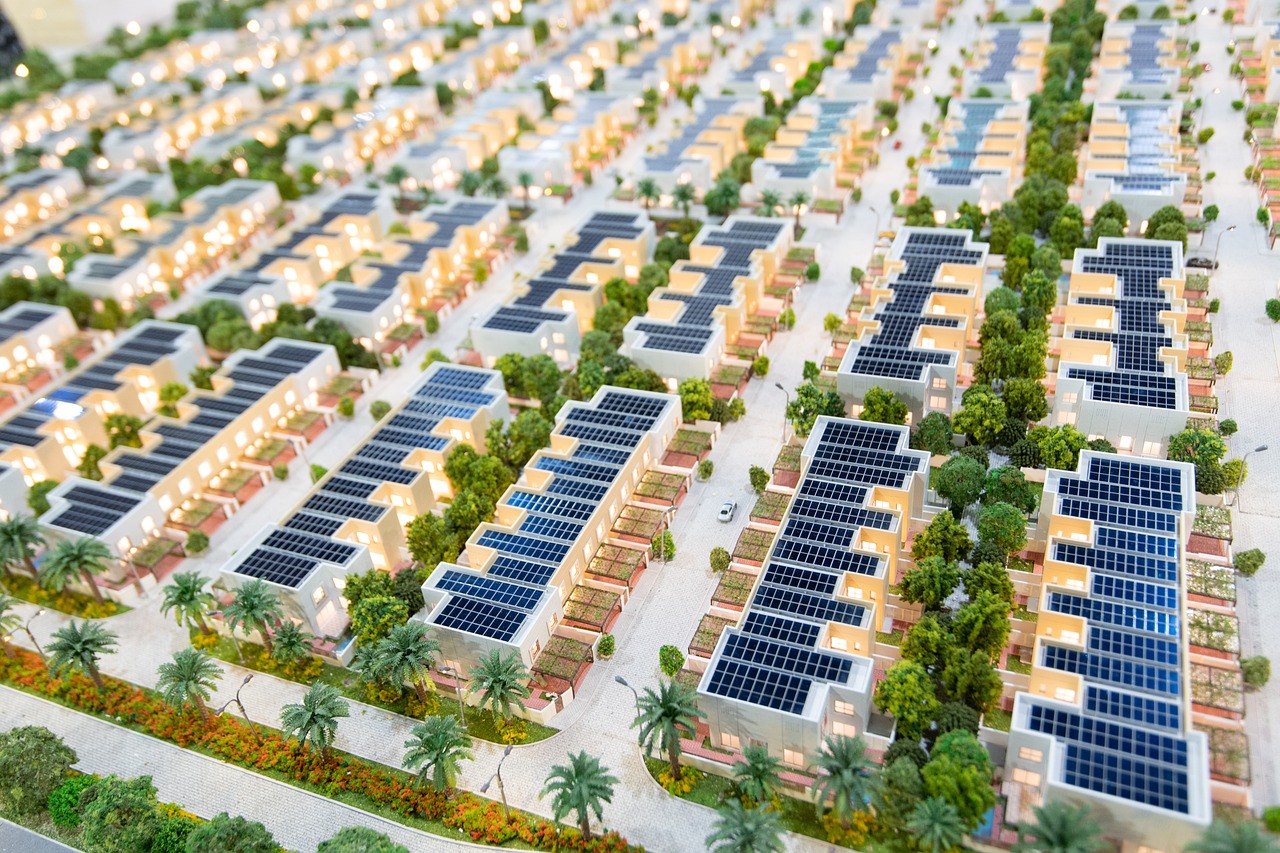
Environmental Impact
When we talk about the of solar power, we're diving into a topic that carries immense weight. Imagine a world where the sun, a seemingly infinite source of energy, powers our homes and businesses without polluting the air we breathe. By transitioning to solar energy, we are not just making a smart financial decision; we are actively participating in a global movement to combat climate change. Solar power significantly reduces carbon emissions, which are a major contributor to global warming. In fact, according to the U.S. Department of Energy, solar energy can cut down your household's carbon footprint by up to 80%. That’s like planting dozens of trees every year!
Every time you choose solar, you’re saying no to fossil fuels, which are notorious for their harmful effects on our planet. The burning of coal, oil, and natural gas releases greenhouse gases that trap heat in the atmosphere, leading to severe weather patterns, rising sea levels, and melting ice caps. By harnessing the sun’s energy, we can significantly lower our reliance on these pollutants. It’s not just about saving the planet; it’s about creating a sustainable future for generations to come.
Moreover, solar power systems can also promote sustainable living practices. When homeowners invest in solar panels, they often become more conscious of their overall energy consumption. This heightened awareness can lead to additional eco-friendly choices, such as:
- Reducing water usage
- Implementing energy-efficient appliances
- Utilizing smart home technology to monitor energy consumption
These choices create a ripple effect, encouraging others in the community to follow suit. It’s like a chain reaction of positivity for the environment!
Another crucial aspect of solar energy's environmental impact is its ability to conserve water. Traditional energy production, particularly in fossil fuel and nuclear power plants, requires vast amounts of water for cooling and processing. In contrast, solar power systems use minimal water, making them a water-friendly option. This is particularly important in areas experiencing drought or water scarcity.
In summary, the environmental benefits of solar power extend far beyond just reducing utility bills. By investing in solar energy, you are taking a stand against climate change, promoting sustainable practices, and conserving precious natural resources. So, why not embrace the power of the sun? It’s a bright idea for both your wallet and the planet!
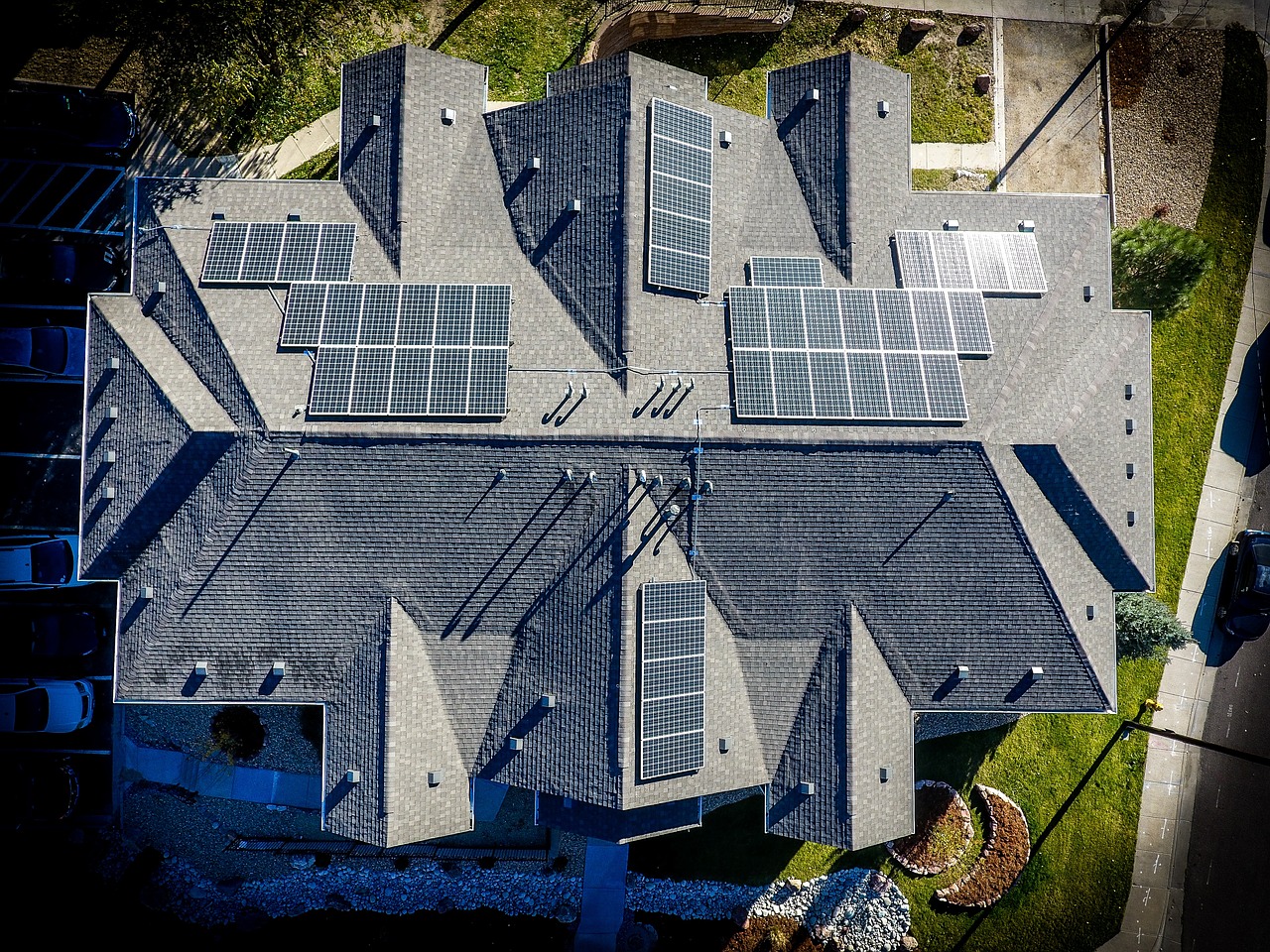
Cost Savings
When it comes to , solar power is a game-changer for homeowners. Imagine slashing your energy bills and simultaneously doing your part for the planet! By harnessing the power of the sun, you can significantly reduce your monthly utility expenses. The initial investment in solar panels may seem daunting, but the long-term financial benefits far outweigh the upfront costs. In fact, many homeowners report savings that can reach thousands of dollars over the lifespan of their solar energy systems.
One of the most compelling aspects of investing in solar energy is the potential for substantial savings on energy bills. Once your solar panels are installed, the electricity they generate can offset a significant portion of your energy consumption. In some cases, homeowners even achieve a net-zero energy bill, meaning they produce as much energy as they use! Additionally, many utility companies offer net metering programs, allowing you to sell excess energy back to the grid, further enhancing your savings.
Moreover, the financial benefits don't stop at lower energy bills. Homeowners can also take advantage of various government incentives designed to make solar energy more accessible. These incentives often come in the form of tax credits, rebates, and grants that can substantially reduce the overall cost of installing solar panels. For instance, the federal government currently offers a tax credit that allows you to deduct a significant percentage of your solar installation costs from your federal taxes. This means that the initial investment becomes much more manageable.
| Incentive Type | Description | Potential Savings |
|---|---|---|
| Federal Tax Credit | Deduct a percentage of solar installation costs from federal taxes | Up to 26% of installation costs |
| State Rebates | Cash rebates provided by state governments for solar installations | Varies by state, often thousands of dollars |
| Local Incentives | Additional local programs and incentives to encourage solar adoption | Varies widely, check local resources |
In addition to these incentives, many homeowners are surprised to learn that solar energy systems can increase property values. Studies have shown that homes equipped with solar panels often sell for more than comparable homes without them. This means that your investment in solar power not only pays off through energy savings but can also provide a solid return when it comes time to sell your home.
Calculating your return on investment (ROI) for solar panels is crucial. To get a clearer picture, consider factors like your local electricity rates, the amount of sunlight your location receives, and the total cost of your solar installation. Many online calculators can help estimate your potential savings and ROI, making it easier to see how solar energy can fit into your financial plans.
In summary, the cost savings associated with solar power are multi-faceted. From lower energy bills and government incentives to increased property values, the financial benefits are compelling. Switching to solar energy not only makes sense for your wallet but also for the environment. So, are you ready to embrace the sunshine and start saving?
- How much can I save with solar power? Savings vary by location and energy usage but can reach thousands of dollars over the lifespan of the system.
- Are there any tax credits available for solar energy? Yes, the federal government offers tax credits for solar installations, along with various state and local incentives.
- What is net metering? Net metering allows homeowners to sell excess solar energy back to the grid, further reducing energy costs.
- Do solar panels increase home value? Yes, studies indicate that homes with solar panels often sell for more than comparable homes without them.

Government Incentives
When it comes to making the switch to solar power, one of the most enticing aspects is the variety of available. These incentives are designed to encourage homeowners to adopt renewable energy sources, making it not only more affordable but also more appealing. Imagine being able to significantly reduce your upfront costs while contributing to a greener planet! Sounds like a win-win, right?
Many governments, both at the federal and state levels, understand the importance of solar energy in combating climate change and are willing to put their money where their mouth is. For instance, homeowners can often take advantage of tax credits, rebates, and even grants that can help offset the initial investment in solar energy systems. These incentives can vary widely depending on where you live, so it’s essential to do your homework and see what’s available in your area.
Let’s break it down a bit further. Here are some of the most common types of government incentives you might encounter:
- Tax Credits: Many states offer tax credits that allow homeowners to deduct a portion of their solar system costs from their state tax liability.
- Rebates: Some local governments and utility companies provide cash rebates for installing solar panels, which can significantly lower your overall expenses.
- Grants: In certain cases, grants may be available to help cover the costs of installation, especially for low-income households or non-profit organizations.
To give you a clearer picture, here’s a table summarizing some common incentives across different states:
| State | Incentive Type | Details |
|---|---|---|
| California | Tax Credit | Up to 26% of installation costs |
| New York | Rebate | Up to $5,000 based on system size |
| Texas | Property Tax Exemption | Solar panel installation increases property value without increasing taxes |
These incentives not only make solar power more accessible but also help homeowners achieve a quicker return on investment. It’s like finding a hidden treasure in your backyard! The more you understand about these programs, the better equipped you’ll be to take advantage of them.
However, it’s crucial to stay updated, as government policies can change frequently. Checking with your local solar energy association or a trusted solar provider can help you navigate through the maze of available incentives. They can provide personalized advice tailored to your unique situation, ensuring you don’t leave any money on the table.
So, if you’ve been contemplating making the leap to solar energy, now might just be the perfect time. With the right incentives, you can transform your home into a sustainable haven while saving money and helping the environment at the same time!
Q1: What are the main benefits of government incentives for solar energy?
A1: Government incentives can significantly reduce the upfront cost of solar installations, making it more affordable and financially appealing for homeowners.
Q2: How do I find out what incentives are available in my area?
A2: You can check with your local solar energy association, state government websites, or consult with a solar provider who can guide you based on your location.
Q3: Are these incentives permanent?
A3: No, government incentives can change frequently. It's essential to stay informed about current programs and deadlines to take full advantage.
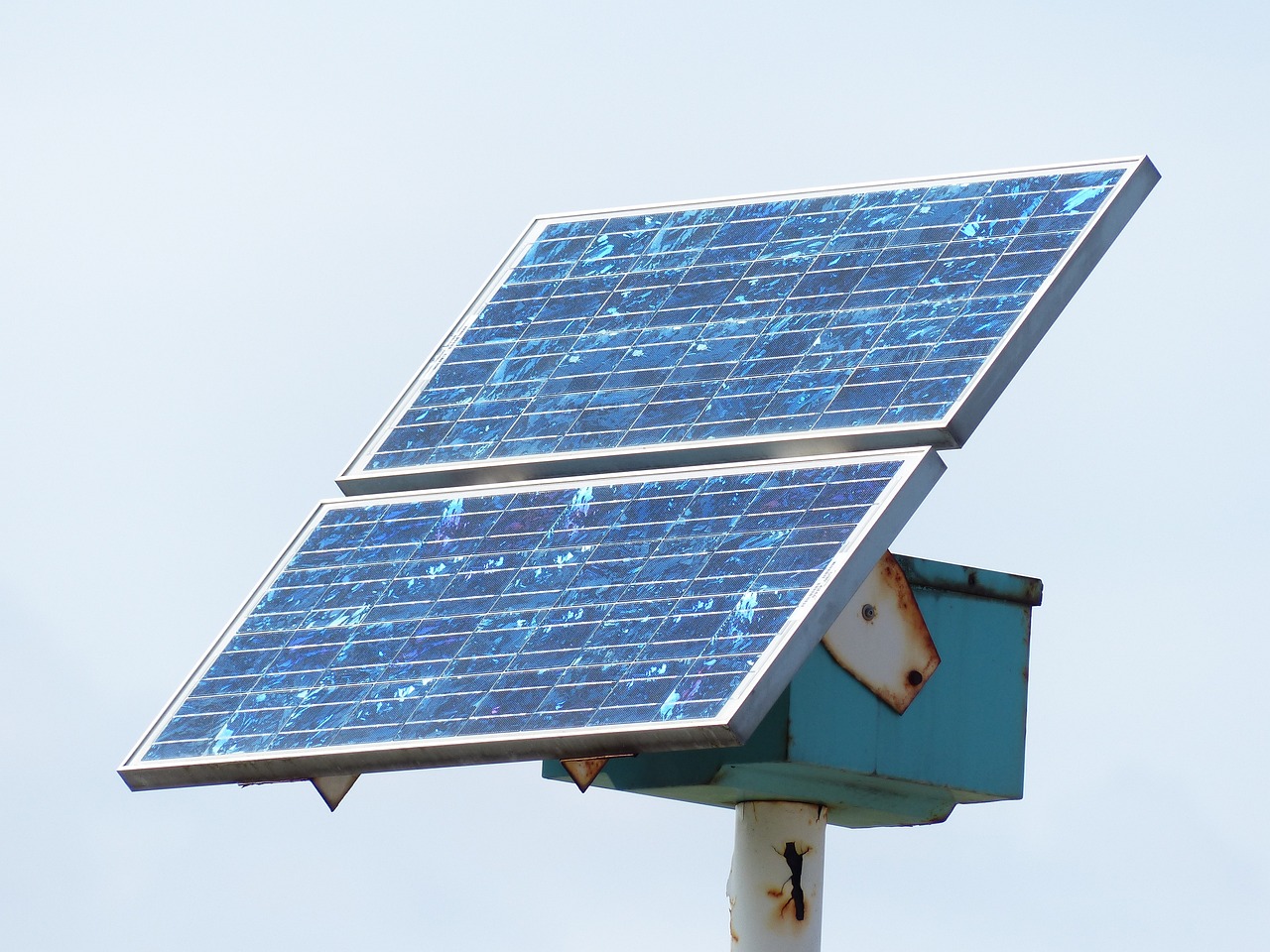
State Programs
When it comes to embracing solar energy, many homeowners find themselves overwhelmed by the myriad of options available. However, one of the most exciting aspects of going solar is the variety of state programs designed to make the transition smoother and more financially viable. Each state has its unique approach, offering a range of incentives that can greatly reduce the cost of installing solar panels. For instance, some states provide cash rebates for solar installations, while others might offer performance-based incentives that reward you for the energy your solar system produces.
Let's take a closer look at how these programs can benefit you. Many states have established renewable energy portfolios that mandate a certain percentage of energy must come from renewable sources. To encourage homeowners to contribute to this goal, states often implement programs that include:
- Rebates: Direct cash incentives for installing solar panels, which can significantly lower your upfront costs.
- Tax Credits: State tax credits that allow you to deduct a portion of your solar installation costs from your state taxes.
- Net Metering: Policies that allow you to sell excess energy back to the grid, effectively turning your meter into a money-making machine.
For example, California’s California Solar Initiative offers substantial rebates and incentives that can cover a significant portion of the installation costs. Meanwhile, New York has its NY-Sun Initiative, which aims to make solar energy more accessible through various financial incentives. These programs not only help to lower the costs associated with solar energy but also promote a sustainable future by encouraging more residents to harness the power of the sun.
Additionally, states like Massachusetts have implemented SMART (Solar Massachusetts Renewable Target) program, which offers a fixed rate for solar energy produced, providing a steady income stream for homeowners. This can be particularly appealing for those looking to offset their energy costs over time. By taking advantage of these state programs, you can not only save money but also play a crucial role in the transition towards a cleaner, greener energy landscape.
In conclusion, exploring your state's solar programs is an essential step in your solar journey. With financial incentives, rebates, and supportive policies, these programs can make solar energy a practical and rewarding investment for your home.
Q: What are state solar programs?
A: State solar programs are initiatives designed to promote the adoption of solar energy through financial incentives, rebates, and tax credits tailored to encourage homeowners to install solar panels.
Q: How do I find out what programs are available in my state?
A: You can visit your state’s energy office website or check with local solar installation companies, as they often have up-to-date information on available incentives and programs.
Q: Are state programs the same as federal incentives?
A: No, state programs are separate from federal incentives. While federal incentives provide tax credits at a national level, state programs vary by location and can offer additional benefits specific to your area.

Federal Tax Credits
When it comes to making the switch to solar energy, one of the most enticing aspects is the availability of . These credits can significantly lower the initial cost of installing solar panels, making it an attractive option for homeowners looking to invest in renewable energy. The federal government offers a tax credit known as the Investment Tax Credit (ITC), which allows homeowners to deduct a substantial percentage of the cost of their solar energy systems from their federal taxes.
As of now, the ITC allows you to deduct 26% of the installation costs from your federal taxes if you install your solar energy system by the end of 2022. This percentage is set to decrease in the coming years, so acting quickly can yield significant savings. For example, if you install a solar system that costs $20,000, you could potentially save $5,200 on your federal tax return!
To qualify for this tax credit, you need to meet certain criteria. The solar energy system must be installed on your primary or secondary residence, and it must be new, not used. Additionally, the system must be operational by December 31 of the year you wish to claim the credit. It's essential to keep all your receipts and documentation, as you'll need them when filing your taxes.
Here's a quick breakdown of how the federal tax credit works:
| Year | Tax Credit Percentage |
|---|---|
| 2022 | 26% |
| 2023 | 22% |
| 2024 and beyond | 0% (unless extended) |
It's also worth noting that if your tax liability is less than the credit amount, you can carry over the unused portion to the next tax year. This feature makes the ITC even more beneficial for those who may not owe a significant amount in taxes during the year they install their solar panels.
In summary, the federal tax credits are a fantastic incentive that not only makes solar energy more accessible but also encourages homeowners to embrace sustainable practices. By taking advantage of these credits, you are not only investing in your home but also contributing to a cleaner, greener planet for future generations. So, if you've been contemplating the switch to solar, now might just be the perfect time!
- What is the Investment Tax Credit (ITC)? The ITC allows homeowners to deduct a percentage of their solar installation costs from their federal taxes.
- How much can I save with the ITC? As of 2022, you can save 26% of your installation costs. For a $20,000 system, that’s a savings of $5,200!
- Do I need to install the system by a specific date? Yes, to qualify for the current percentage, your system must be operational by December 31 of the year you claim the credit.
- What if my tax liability is less than the credit? You can carry over the unused portion of the credit to the following tax year.

Return on Investment
When it comes to solar panels, the term Return on Investment (ROI) is a buzzword that often gets thrown around. But what does it really mean for homeowners? Essentially, ROI refers to the amount of money you can expect to earn back from your investment in solar energy over time. Picture this: you install solar panels on your roof, and instead of watching your hard-earned cash fly out the window every month on energy bills, you start to see savings pile up. Sounds appealing, right?
Calculating your potential ROI involves several factors. First, you need to consider the initial cost of the solar system, which includes the price of the panels, installation, and any additional equipment like inverters. Then, factor in your local electricity rates and how much sunlight your location receives. In sunny areas, homeowners can see their investment pay off much faster than in places with less sun.
Let's break it down a bit further. On average, a solar panel system can lead to savings of around 20% to 50% on your monthly electricity bills. Over the lifespan of the panels, which typically ranges from 25 to 30 years, those savings can add up significantly. For example, if you save an average of $100 a month, that's a whopping $36,000 over 30 years! Now, let’s say your initial investment was around $20,000. That gives you a clear picture of a solid ROI.
| Initial Investment | Monthly Savings | Years to Break Even | Total Savings Over 30 Years |
|---|---|---|---|
| $20,000 | $100 | 10 years | $36,000 |
But wait, there’s more! The ROI isn’t just about savings on electricity bills. It also includes the potential increase in your home’s market value. Homes equipped with solar energy systems often sell for more than those without. In fact, studies have shown that solar homes can command a premium of about 4% to 6% more than their non-solar counterparts. So, if you ever decide to sell your home, you could recoup your investment even further.
Another factor to consider is the availability of government incentives. Many states and local governments offer tax credits and rebates, which can significantly reduce the upfront costs of installing solar panels. This means that your initial investment could be lower, leading to a quicker return on your investment. It's like getting a bonus for making a smart choice!
In conclusion, investing in solar power can be a financially savvy decision that pays off in numerous ways. Not only can you enjoy lower energy bills and increase your home's value, but you also contribute to a sustainable future. So, if you’re considering making the switch to solar, think about the ROI—it’s not just about saving money; it’s about making a wise investment in your home and the planet.
- How long does it take to see a return on my investment? Typically, homeowners can expect to see a return on their solar investment within 5 to 10 years, depending on local energy costs and available incentives.
- Do solar panels increase home value? Yes, homes with solar panels often sell for more than those without, with studies showing a premium of 4% to 6%.
- What factors affect the ROI of solar panels? Key factors include the initial cost of the system, local electricity rates, sunlight exposure, and available government incentives.
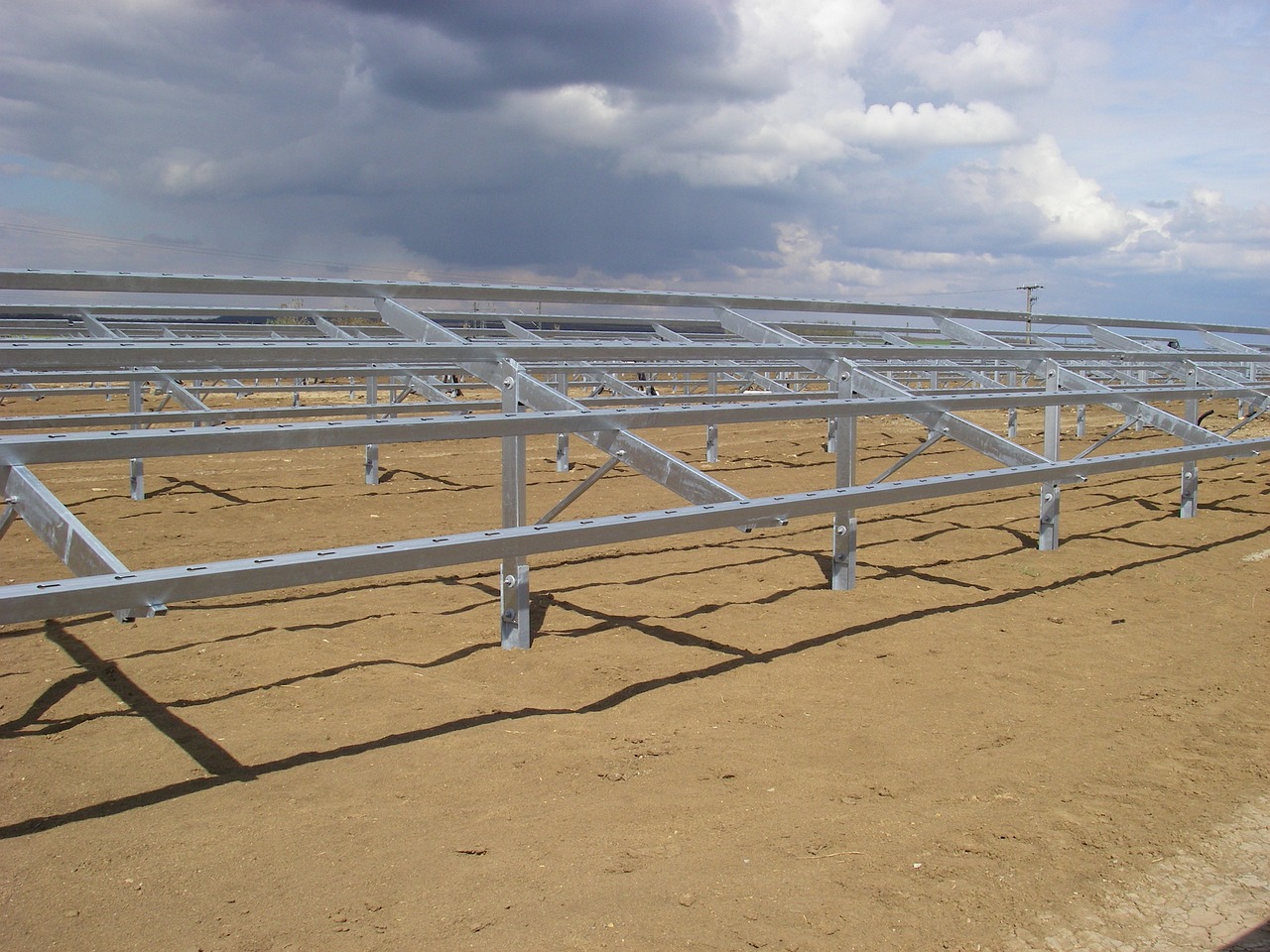
Energy Independence
In a world where energy demands are skyrocketing, the concept of has never been more crucial. Imagine waking up every morning knowing that the energy powering your home is generated right from your rooftop—sounds liberating, doesn’t it? By harnessing the power of the sun, homeowners can reduce their reliance on fossil fuels and take control of their energy production. This is not just a trend; it’s a movement towards a more sustainable and self-sufficient lifestyle.
Transitioning to solar energy means you can generate your own electricity, which significantly diminishes your dependence on traditional utility companies. This shift not only empowers you as a homeowner but also contributes to a broader societal change aimed at reducing our carbon footprint. When you think about it, every solar panel installed is a step away from environmental degradation and a leap towards a cleaner, greener future.
Now, let’s delve into the benefits of energy independence:
- Financial Freedom: By producing your own energy, you can shield yourself from fluctuating utility rates. Imagine not having to worry about rising electricity bills every summer as demand peaks!
- Resilience Against Outages: With your own solar energy system, you’re less vulnerable to grid failures. You can keep the lights on and your devices charged even when the power goes out.
- Enhanced Security: Generating your own electricity not only gives you peace of mind but also makes your home less susceptible to energy shortages and price hikes caused by geopolitical issues.
But how do we achieve this level of independence? One way is through grid independence. By installing a solar power system, you can significantly reduce your reliance on the local grid. This means that during peak times, when energy prices soar, you can still rely on the energy you’ve generated. It’s like having your cake and eating it too—enjoying the benefits of solar energy while keeping your finances in check!
Moreover, the incorporation of battery storage solutions can elevate your energy independence even further. Imagine having a backup system that stores excess energy generated during sunny days, allowing you to use it during cloudy days or even at night. This means you can effectively manage your energy consumption, ensuring that you always have power available when you need it most. Think of it as your personal energy reservoir, ready to supply you with power no matter the circumstances.
In conclusion, embracing solar energy is a powerful way to achieve energy independence. Not only does it offer a pathway to personal empowerment and financial savings, but it also contributes to a larger movement towards sustainable living. As we navigate the complexities of modern energy demands, solar power stands out as a beacon of hope, illuminating the path to a more self-sufficient and environmentally friendly future.
Q: What is energy independence?
A: Energy independence refers to the ability of a homeowner to generate their own electricity, reducing reliance on external energy sources and utility companies.
Q: How does solar energy contribute to energy independence?
A: By installing solar panels, homeowners can produce their own electricity, which decreases their dependence on the grid and protects them from rising energy costs.
Q: What are battery storage solutions?
A: Battery storage systems allow homeowners to store excess solar energy for use during times when sunlight is not available, providing a reliable energy source and enhancing independence.

Grid Independence
When you think about solar power, one of the most empowering aspects is the concept of . Imagine waking up in the morning, flipping the switch for your coffee maker, and knowing that the energy to brew that cup of joe is coming from your own solar panels. It's a liberating feeling! This independence means you are less reliant on traditional utility companies and their fluctuating prices. Instead, you’re generating your own electricity, which can lead to greater control over your energy consumption.
Grid independence isn't just about saving a few bucks on your utility bill; it’s about taking charge of your energy future. By producing your own electricity, you’re not only insulating yourself from rising energy costs but also contributing to a more sustainable energy landscape. Think of it as a personal power plant right on your roof! This shift can be particularly beneficial during peak demand times when electricity prices soar. With solar energy, you can rely on your own system rather than being at the mercy of the grid.
Moreover, solar power systems can be designed to work in tandem with battery storage solutions. This means that when the sun is shining, and your panels are generating more energy than you can use, you can store that excess energy for later. This stored energy can be a lifesaver during power outages or when the weather isn’t cooperating. By having a battery storage system, you can enjoy the benefits of your solar energy even when the sun isn’t shining. It’s like having a safety net for your energy needs!
In essence, the benefits of grid independence extend beyond just personal savings. They encompass a broader impact on the environment and the economy. Here are some key points to consider:
- Reduced Carbon Footprint: By generating your own clean energy, you contribute to a significant reduction in greenhouse gas emissions.
- Resilience Against Outages: Homeowners with solar and battery systems can maintain power during grid failures.
- Increased Property Value: Homes equipped with solar power systems often see a boost in market value, making them more attractive to potential buyers.
Ultimately, achieving grid independence through solar power is not just a dream; it's a tangible reality that many homeowners are embracing today. By investing in solar energy and battery storage, you can enjoy the peace of mind that comes from knowing you have a reliable, sustainable, and cost-effective energy source right at your fingertips. So why wait? Take the leap into solar power and enjoy the freedom it brings!
- What is grid independence? Grid independence refers to the ability to generate your own electricity through solar power, reducing reliance on the traditional electric grid.
- How do solar panels contribute to energy independence? Solar panels allow homeowners to produce their own electricity, which can decrease reliance on fossil fuels and the grid.
- What are the benefits of battery storage with solar panels? Battery storage systems allow homeowners to store excess solar energy for use during outages or when sunlight is low, enhancing energy resilience.
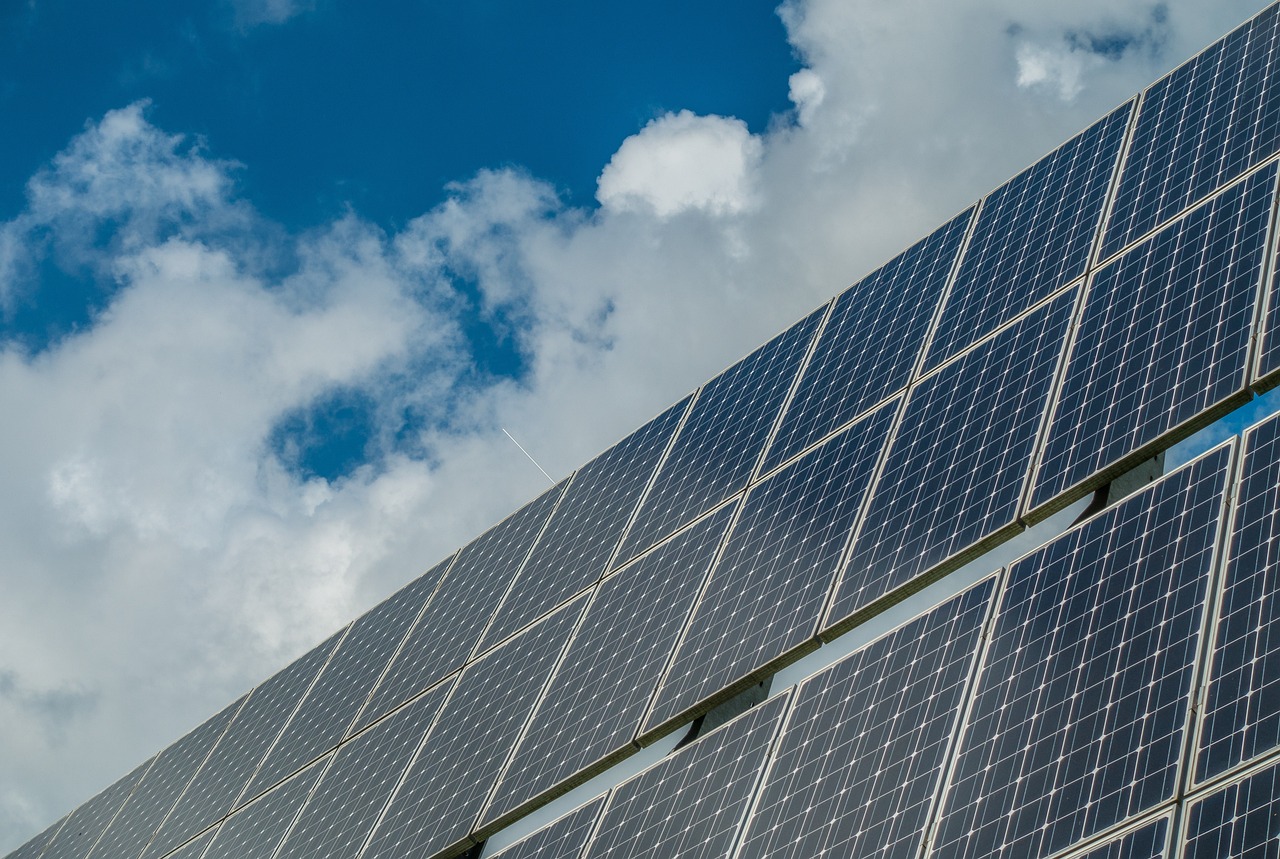
Battery Storage Solutions
Incorporating with your solar energy system can be a game-changer. Imagine having the ability to store excess energy generated during sunny days and using it when the sun isn’t shining. This not only enhances your energy independence but also provides a safety net during power outages. With battery storage, you can harness the full potential of your solar panels, ensuring that you have a reliable source of energy at all times.
One of the most significant benefits of battery storage is the ability to reduce your reliance on the grid. During peak hours when electricity rates soar, having stored energy means you can rely on your own power supply, effectively lowering your energy costs. Think of it as having a backup generator that runs on sunshine! You can use the energy you’ve stored during the day to power your home in the evenings or during cloudy weather, maximizing your solar investment.
When considering battery storage, it’s essential to understand the different types available on the market. Here’s a quick overview of popular battery types:
- Lithium-ion batteries: These are the most common type used in residential solar systems due to their high energy density and efficiency.
- Lead-acid batteries: While less expensive, they have a shorter lifespan and lower energy density compared to lithium-ion options.
- Flow batteries: These are emerging as a viable alternative, offering longer life cycles and scalability, although they are currently less common in residential settings.
Choosing the right battery storage solution for your home depends on several factors, including your energy needs, budget, and how much energy you wish to store. It's crucial to assess your household's energy consumption patterns. For instance, if you typically use more energy in the evening, a larger battery capacity may be necessary to ensure you have enough stored energy to meet your needs.
Additionally, advancements in technology have made battery systems more efficient and affordable. Many homeowners are now opting for integrated solar-plus-storage systems that allow for seamless energy management. These systems come equipped with smart technology that can optimize when to draw from the battery versus the grid, ensuring you always get the best rates.
In the long run, investing in battery storage can significantly enhance your solar power system's effectiveness. Not only does it provide peace of mind during outages, but it also allows you to take control of your energy consumption and costs. As we move towards a more sustainable future, the combination of solar energy and battery storage is becoming increasingly vital for homeowners looking to reduce their carbon footprint and achieve true energy independence.
1. How long do solar batteries last?
Most solar batteries have a lifespan of 5 to 15 years, depending on the type and usage. Lithium-ion batteries tend to last longer than lead-acid batteries.
2. Can I add battery storage to my existing solar system?
Yes, many existing solar systems can be retrofitted with battery storage. It’s best to consult with a solar provider to assess compatibility and options.
3. Will battery storage save me money?
Yes, by storing energy and using it during peak hours, you can significantly reduce your electricity bills and maximize your solar investment.
4. How much energy can a solar battery store?
The amount of energy a solar battery can store varies by model. Common residential batteries can store anywhere from 5 kWh to 20 kWh of energy.
5. Do I need a permit to install battery storage?
Permitting requirements vary by location. It’s essential to check with your local authorities or solar provider to understand the regulations in your area.
Frequently Asked Questions
- What are the main environmental benefits of solar power?
Solar power significantly reduces carbon emissions, which helps combat climate change. By switching to solar energy, you're not only saving money but also contributing to a cleaner and healthier planet for future generations.
- How much can I save on my energy bills with solar power?
Many homeowners see substantial reductions in their energy bills after installing solar panels. Depending on your location, energy consumption, and the size of your solar system, savings can range from 20% to over 50% on monthly utility costs.
- Are there any government incentives for installing solar panels?
Yes! Many governments offer a variety of incentives, including tax credits, rebates, and grants to encourage solar energy adoption. These financial benefits can significantly reduce the initial costs associated with installing solar power systems.
- What kind of state programs are available for solar energy?
State programs vary widely, but many offer specific incentives like performance-based incentives, solar renewable energy certificates (SRECs), and grants. It's best to check your state's energy office for the most accurate and updated information.
- How do federal tax credits work for solar energy?
Federal tax credits allow homeowners to deduct a percentage of their solar installation costs from their federal taxes. This can lead to significant savings, making solar power more affordable and appealing for homeowners.
- What factors influence the return on investment (ROI) for solar panels?
The ROI for solar panels is influenced by factors such as the initial cost of the system, local electricity rates, available incentives, and the amount of sunlight your location receives. Homeowners can calculate their potential savings by considering these elements.
- How does solar energy promote energy independence?
By generating your own electricity with solar panels, you reduce your reliance on fossil fuels and the traditional electricity grid. This not only enhances your energy security but also empowers you to have more control over your energy consumption.
- What are the benefits of grid independence with solar power?
Grid independence means you rely less on the utility company for your power needs. This can lead to greater energy resilience, especially during outages or price hikes, as you can generate and use your own electricity.
- How do battery storage solutions work with solar panels?
Battery storage systems allow you to store excess energy generated by your solar panels for later use. This is particularly beneficial during power outages or at night when solar energy isn't being produced, ensuring you have a continuous energy supply.



















